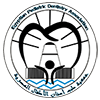
Dr. Michele Callea

Biography
Michele Callea was born on the 3rd of November in Brescia, Italy. He finished his classical studies in 1994. He fulfilled his degree in Dentistry and Dental Prosthesis at the University of Brescia in 2001 with a thesis entitled “HCV and saliva”; he has been then at the KU Leuven (Leuven, Belgium) till September 2007 in order to fulfill his Master’s and a Specialization in Pediatric Dentistry and Special Dental Care with a thesis entitled “Dental extractions in patients under oral anticoagulants”; he had then several clinical and research fellowship at the Institute of Maternal and Child Health, IRCCS, Burlo Garofolo, in Trieste, Italy, till 2016; he moved then to the Vatican Hospital, IRCCS, Bambino Gesù Children Hospital; in the last 15 years, he dedicated himself to oral manifestations in rare diseases, focusing his attention on disorders where hypodontia and hyperdontia are present (i.e., ectodermal dysplasia, cleidocranial dysplasia); he is ending a PhD in Molecular Genetics and Biotechnology (University of Nova Gorica, Slovenia); he is now Senior consultant in Meyer Children Hospital, Florence Italy; he published around a 100 of articles and book chapter; he is Reviewer and part of the Board of several Dental, Pediatric and Genetic International Journals and lecturer at the Harran University (Turkey), Dicle University (Turkey), Universitas Inonesia, Giacarta, Indonesia, Universidad de los Andes, Merida (Venezuela).
Lecture
Ectodermal dysplasia (ED) syndromes are a heterogenous group of inherited diseases characterized by abnormal development of tissues of ectodermal origin. X-linked hypohidrotic ED (HED) is the most commonly occurring form of EDs that is characterized by the triad of oligo/anodontia, hypotrichosis and hypo-anhidrosis. Oligo/anodontia leads to compromised chewing and swallowing abilities, esthetics, speech and social relations. Prosthetic rehabilitation at an early age is essential to improve oral functions and reduce social impairment.
